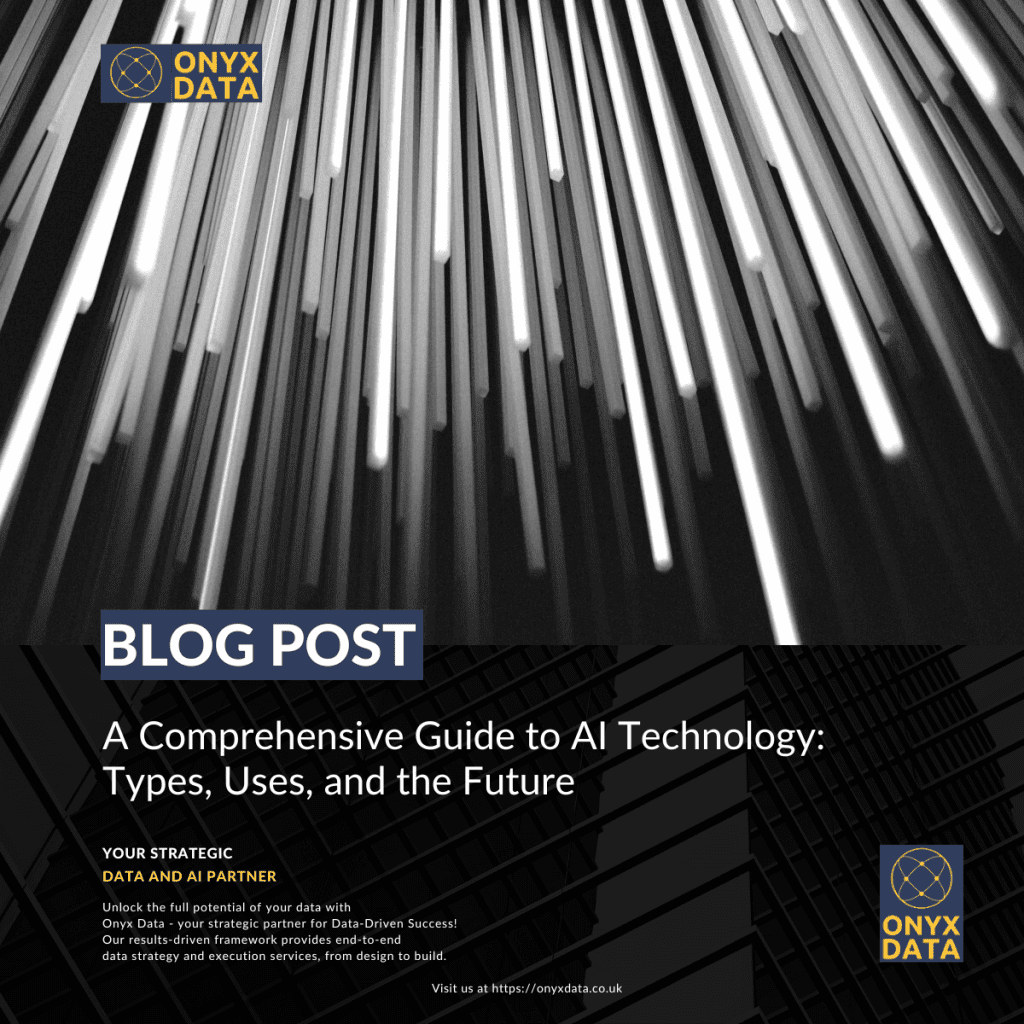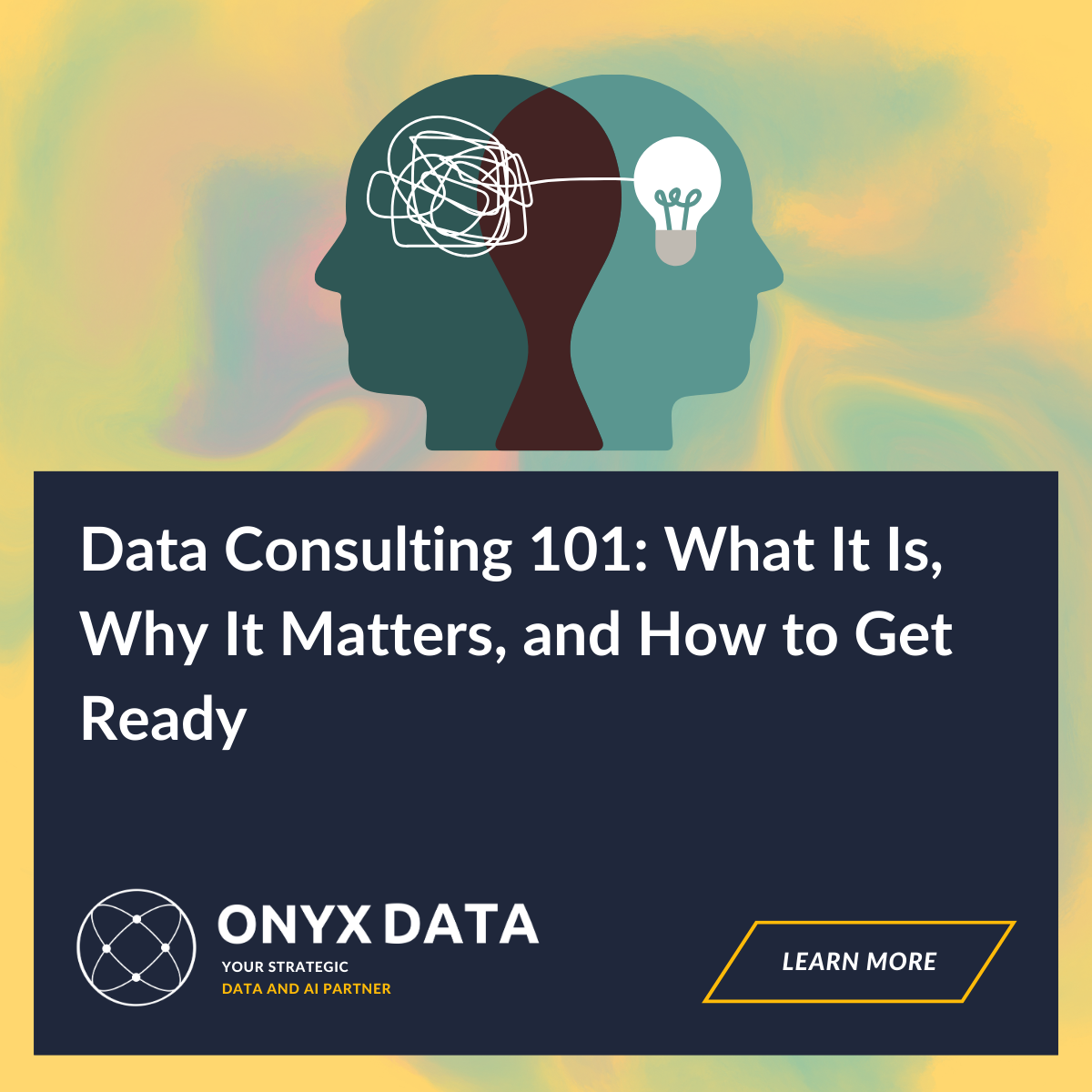A Comprehensive Guide to AI Technology: Types, Uses, and the Future

Artificial Intelligence (AI) has rapidly evolved from being a concept of science fiction to a powerful and transformative force in the real world. AI technology is revolutionising various industries and impacting our daily lives in more ways than we can imagine.
In this blog, we will delve into the different types of AI technologies, explore what AI is, who uses it, how it works, its advantages, and its promising future.
What is Artificial Intelligence (AI)?
At its core, AI refers to the development of computer systems that can perform tasks that typically require human intelligence. These tasks include problem-solving, decision-making, understanding natural language, recognising patterns, and even learning from experience. AI is designed to simulate human thinking and decision-making processes, making it capable of carrying out complex tasks autonomously.
Who Uses AI?
AI technology is not limited to a specific sector; it is utilised across various industries. For instance:
Healthcare: AI is employed in medical diagnosis, drug discovery, and personalised patient care.
Finance: In finance, AI algorithms are used for fraud detection, portfolio management, and algorithmic trading.
Manufacturing: AI-driven robots and automation systems enhance efficiency and reduce errors in manufacturing processes.
Retail: AI personalises shopping experiences, recommends products, and optimises supply chain management.
Entertainment: AI powers content recommendations on streaming platforms and game development.
Transportation: Self-driving cars and AI-based navigation systems are revolutionising transportation.
Customer Service: Chatbots and virtual assistants provide efficient customer support.
What is AI Technology, and Can it be Useful?
AI technology encompasses a range of techniques and tools that enable machines to exhibit intelligent behaviour. These include:
- Machine Learning: It allows machines to learn from data and improve their performance over time. Supervised learning, unsupervised learning, and reinforcement learning are common subfields.
- Natural Language Processing (NLP): NLP enables machines to understand, interpret, and generate human language, facilitating chatbots and language translation.
- Computer Vision: It enables machines to analyse and interpret visual information from the world, making applications like facial recognition and image analysis possible.
- Expert Systems: Expert systems use a knowledge base to solve complex problems, making them useful in diagnostics and decision support.
- Neural Networks: These are algorithms inspired by the human brain, often used in deep learning to solve complex problems like image and speech recognition.
How Does AI Work, and What Technology is Used?
AI systems typically rely on vast amounts of data. Machine learning models are trained on this data, and algorithms identify patterns and make predictions or decisions. Neural networks, which mimic the human brain’s structure, are used in deep learning. Furthermore, GPUs (Graphics Processing Units) and TPUs (Tensor Processing Units) are used for the rapid computation required for AI tasks.
What is AI Technology, and Demand in the Future?
AI technology is poised to play an increasingly central role in our lives. In the future, we can expect to see AI:
In Healthcare: AI will assist in more accurate disease diagnosis and drug discovery.
In Education: Personalised learning experiences and virtual tutors will be made possible by AI.
In Finance: AI will provide more advanced risk assessment and financial planning.
In Smart Cities: AI will contribute to better traffic management and urban planning.
In Environmental Sustainability: AI will help monitor and combat climate change.
In Space Exploration: AI-driven rovers and spacecraft will aid in exploring distant planets.
What is AI Technology, and How is AI Changing the World?
AI is fundamentally changing the world in multiple ways:
- Automation: AI is automating routine and manual tasks, enhancing efficiency and reducing errors.
- Personalization: AI tailors’ content and services to individual preferences, from Netflix recommendations to targeted advertising.
- Healthcare: AI is assisting in early disease detection and improving patient care.
- Education: AI is providing personalised learning experiences and accessible education.
- Security: AI aids in cybersecurity by detecting threats and vulnerabilities.
- Sustainability: AI contributes to energy conservation and environmental monitoring.
What are the Advantages of AI Technology?
The advantages of AI technology are numerous:
- Efficiency: AI can process vast amounts of data quickly and accurately.
- Accuracy: AI reduces human error in tasks like data analysis and pattern recognition.
- Cost Savings: Automation leads to cost savings in various industries.
- Personalization: AI provides tailored experiences for users.
- 24/7 Availability: AI-powered systems can work round the clock without fatigue.
- Innovation: AI drives innovation in multiple sectors, from autonomous vehicles to medical advancements.
What is the Future of AI Technology?
The future of AI technology is incredibly promising. As AI algorithms continue to improve and become more accessible, we can anticipate:
- Wider Adoption: More industries will integrate AI into their operations.
- Ethical Concerns: AI ethics and regulations will become increasingly important.
- Quantum Computing: Quantum computing will boost AI capabilities to new heights.
- Human-AI Collaboration: AI will complement human abilities, leading to new opportunities.
- Solving Complex Problems: AI will tackle global challenges, including healthcare and climate change.
In conclusion, AI technology is a rapidly evolving field with wide-ranging applications and a promising future.
Want to find out more?
Interested in learning more about AI and how we Onyx Data use it to transform businesses? Contact us today to get in touch with our team of experts. Whether you have specific questions, need additional details, or want to explore customised data solutions tailored to your needs, we’re here to assist you every step of the way. Embrace the future of data-driven success with Onyx. Reach out now!







